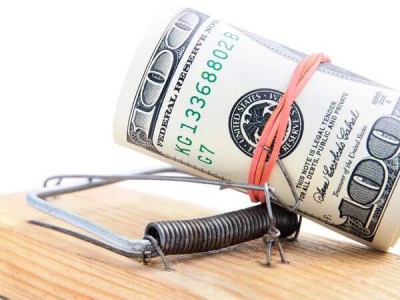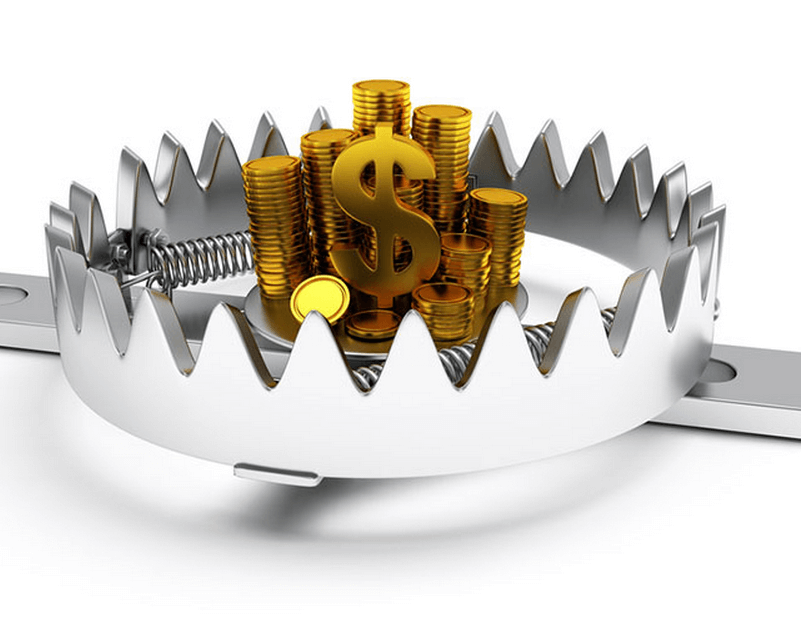
Lottery scams have gone from being a rare occurrence to a $10 billion (about €7704546.10) a year industry, scamming millions of people all over the world, which has made people very wary of playing lotteries. We at LottoTime decided to put your mind at ease by explaining the different types of lottery scams that are out there and what you must do to protect yourself from falling prey to these schemes.
The “You have won the lottery!” scam
This is the most popular scam there is out there. This usually comes in the form of an obscure email stating that you have won a massive amount and that you need to email your bank details to pay off the taxes so that you can claim your winnings. But these so-called “taxes” are actually the profit of the scammers. If the “winnings” are over $1 million (about €800 000) the “taxes” you are asked to pay can reach up to tens of thousands of pounds.
Luckily, avoiding this type of lottery scam is easy. First, think about whether you played the lotto recently? If not, how is it possible that you won a lottery you never played? And even if you did play the lottery recently, check the email to see if it mentions the specific lottery that you played. Most scam emails don't mention a lottery, so if you receive an email saying you won but it doesn't mention which lottery, ignore it. Lastly, check the winning numbers. If they don't match the numbers you played, it is clearly a scam.

The “Elaborate” scam
This scam is a bit trickier as it pretends to be an actual lottery operator. These online scams tend to have a facade of an official website that looks exactly like the real website, and has the same features.

To avoid this kind of scam, you need to be extra careful. Inspect the URL of the website - a legitimate website would not have any spelling mistakes or dashes in their URL. So if the URL says “euromilions” instead of “euromillions” it is a fake as EuroMillions is spelled with two l’s. Next, make sure the payment pages are SSL secure by checking whether the URL line at the top of the browser turns green. Also, take note of certificates and official online security validation sites like Mcafee Secure and Norton SafeWeb for example. If the website you are on has any dubious elements, exit it immediately and rather play the lottery on another, legitimate, website.
The “European” lotteries….in Nigeria scam
Clear signs that these emails are scams are expressions such as “your email address was selected” or “your email address won”. Even more glaringly obvious is the request to contact someone with a royal sounding name such as Mr. William Enfield who uses public service live.com. Why would an official lottery organisers ask you to contact them via their personal email? All that kind of correspondence is supposed to go to and from a work address. Also, if it is a European lottery, why is Mr. Enfield contacting you from Nigeria?
The “Name Dropping” scam
By naming a reputable organisation, scammers try to gain the trust of victims by using names that are familiar to them, such as Coca-Cola. Unfortunately, these big companies cannot do anything about their name being used by fraudsters. The emails usually claim that these companies are holding lotteries and that the attachments contain your "you won” message. But ask yourself, why would these massive companies send emails from public mail servers like Gmail for example?
.jpg)
When you receive an email of this variety, go to the company's official site and - 9 times out of 10 - you will see that they aren't conducting a lottery. Furthermore, Google “Google lottery” (or whichever company’s name has been used) you will find links to articles on these scams and even victims’ stories.
There are many MANY more lottery scams out there just waiting to catch you out, but it’s easy to stay safe and continue playing the lottery. Just play lotto online with us.
